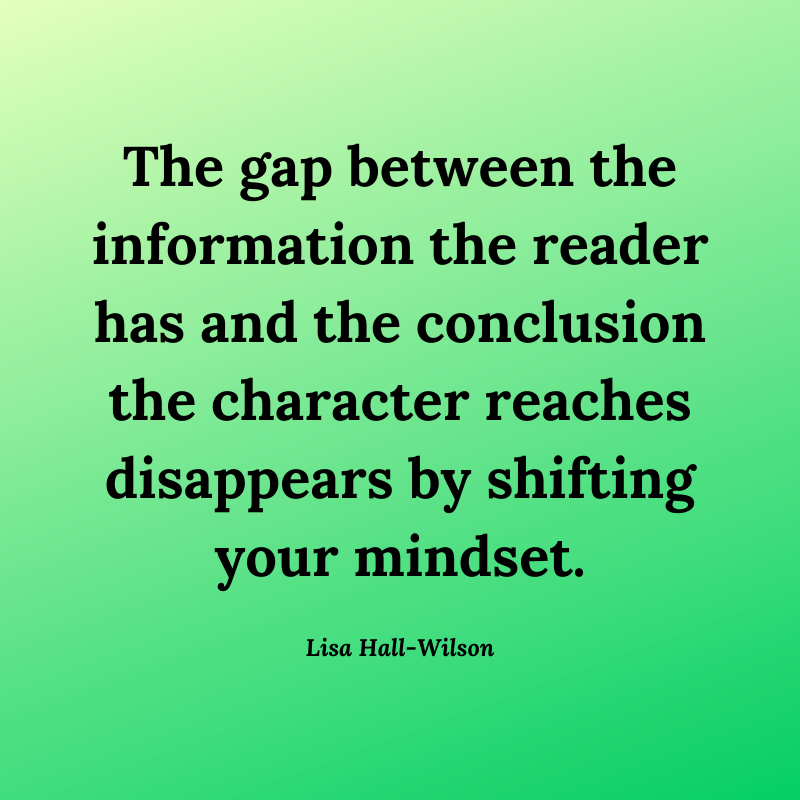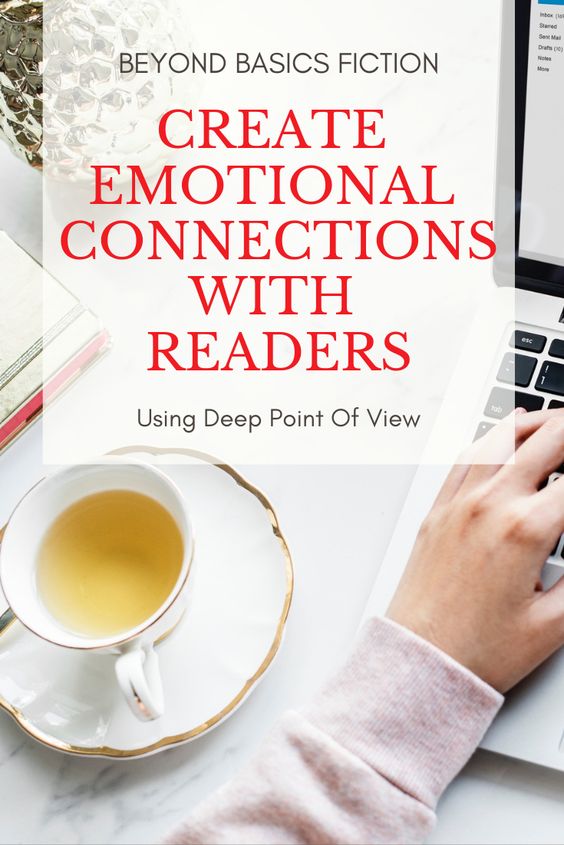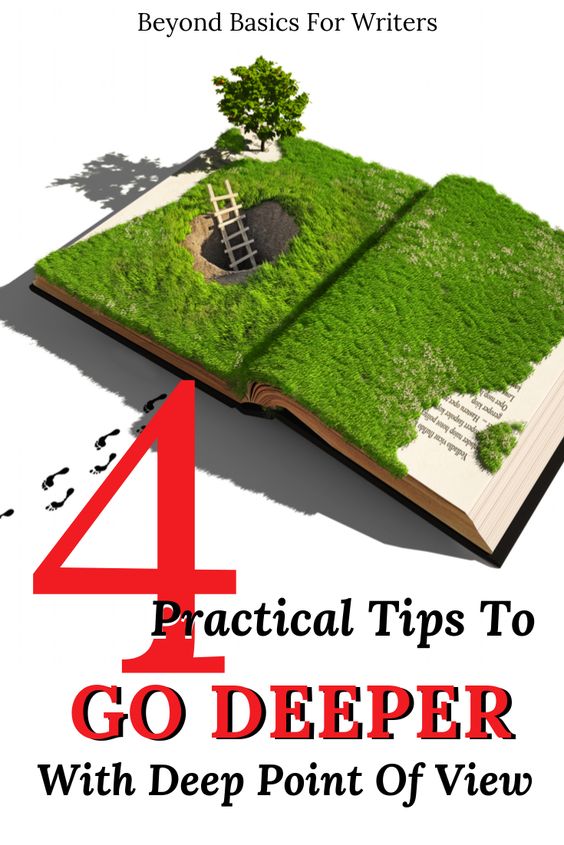
Part of the power of deep point of view (I think) is diving deep into emotions in a way that’s both specific and unique to the character and universal to the reader. Some writers focus more on what’s happening than on what’s being felt. I fall into this category. I have to put the emotions in during edits. Here are the steps that have really helped me.
We’re continuing in our FAQ series on Deep POV. The question that came in was: “I’ve been told my novel is dry. Plenty of action, low on emotion. How do I add more emotion?”
These comments are hard to get from editors and beta readers, because you just want to throw up your hands (at least I do) – I DID add emotions. Perhaps this is partly personality based, I’m not one to openly express emotions in real life very often, so it just doesn’t come naturally to my writing. It’s something I’ve had to learn and compensate for. I’m more likely to restrict the emotion to the dialogue in a first draft — which isn’t nearly deep enough for readers.
What Is The Scene Goal?
Whether you’re a plotter or pantser, you reach a point where you have have to look at each chapter/scene as a whole and ask: what does my character want in this scene? What are they trying to accomplish?
Whatever your character’s story problem is – the big, takes-the-whole-story-to-solve problem, each chapter is your character’s next step in solving that problem. Have a clearly defined scene goal and know whether your character doesn’t get what they want or whether they get what they want, but they no longer want it.
Frank is notified he’s inherited $100,000 from his great aunt Martha, but the will stipulates he must be in L.A. by Friday morning for the will reading to collect his inheritance. Frank’s first step in solving his story problem is to get on a plane in New York for L.A, but his plane has mechanical issues and gets rerouted to Atlanta. He can’t get on a flight to L.A. til Friday noon.
Frank must now make a decision about what he’s going to do next to solve his story problem. Is Frank the kind of character who’s ruled by his emotions, uses his emotions to inform his actions, or does he completely suppress his emotions and rely entirely on logic?
However Frank uses his emotions, they are there and are very involved in what’s happening. The problem comes when we just write out the hassle Frank went through getting time off (and how he slammed a few drawers shut) or how he almost missed the flight in New York (and gave the cabbie the finger on his way out of the taxi). Those aren’t enough.
Human emotions serve a function. They are always trying to raise a concern, protect us, or tell us something. When you think of emotions that way, it’s easier (I find) to figure out what collection of emotions our characters would be feeling. To paraphrase Sigmund Freud, “I think this man is suffering from memories.”
Dialogue isn’t enough to convey emotion in fiction, it’s helpful but it’s not enough on its own. In deep pov, we want to write as though the reader is a fly on the wall inside our character’s head. So, we’re also using body posture, tone of voice, expressions, internal dialogue, and physiology to show emotions as well. Every decision has a WHY, and that WHY is either informed by, ruled by, or in denial of, an emotion.
Get really curious about what the character is risking, what they stand to lose, about why they can’t turn back.
What Is The Character’s WHY In That Scene?
You’ve built in a point of no return for your character, a reason they can’t can’t ever walk away from this story problem. There are stakes for Frank, stakes that mean he can’t just decide not to go to L.A. He has to get to great aunt Martha’s will reading or life is over for Frank because it means the uncle who sexually molested his sister will have to be there — and he’d made a promise at his sister’s grave to kill the man who caused her to commit suicide.
Get curious about the WHY. Now we know getting to great aunt Martha’s will reading is an external story problem, but it’s not Frank’s WHY. The will reading is the next step in solving his emotional problem – which is murdering his uncle. The emotional arc should have plot points that align with the external story problem, but they don’t have to be the same thing.
Why does Frank see murder as the only way to solve his emotional story problem? What does he think seeking revenge says about his character? What won’t he do in order to achieve his goal? What would a stronger man be able to do in the aftermath of his sister’s death? What does Frank think it says about him that he’s not that strong? Begin to turn the story problem over in your mind, what other ways can you look at why your character needs to see this done? Why can’t they fail?
Each obstacle between Frank and his external story goal (reaching L.A. by Friday morning), complicates Frank’s emotional story goal (murdering his uncle). Failure or success in achieving the external story goal must have emotional consequences.
Drill down in a specific and unique WHY for your character. Understanding what drives your character will help the reader identify with them and care.

What Emotions Are Involved In That Scene?
So, understanding the three things already discussed informs the emotions we can draw upon for any scene and character: the overall story goal, scene goal, and the WHY. Being specific about the emotions driving the decisions is important, it’s what helps readers lean in. This isn’t achieved by objective-sounding rationales, by descriptions of what hasn’t worked, or even narrative about what’s at stake.
Drill into the primary and secondary emotions at play and get specific. You won’t do this for every character, but for your main character you want to. Intimately understand why they’re making any decision. This is super hard for me. I have a book doctor (or sorts) who helps me dig deeper into the emotions of a scene because it just doesn’t come naturally to me. I can help others find it in their own work, but rarely in my own.
Frank is stuck in Atlanta and reaching L.A. by Friday morning is no longer assured. What emotions would be at play? Let’s get curious about this. Don’t just go with the first one that comes to mind, because in real life there would be a wide range of emotions at play, right. Rarely are things so cut and dry in life. I brainstorm as many emotions as I can, unearthing one or more with each new angle I approach the story and emotional problem from.
Maybe hearing about the will and piecing together that Frank’s uncle has to show up in L.A. reignites the grief over his sister? Maybe it reignites the shock of his sister’s suicide and how helpless and vulnerable and alone that left him feeling. Maybe he is reminded of how stupid he felt, that he never saw the signs of the abuse or of his sister’s depression — or maybe (in contrast) in hindsight he sees the signs of her distress and calls for help and brushed her off.
Those are primary emotions. What would be the thinking reactions to those primary emotions? That vulnerability, loss of control, helplessness, shock, grief, self-loathing, these are uncomfortable and unpleasant. What emotions would help him feel like he’s regained control of things, that will give him hope that he can DO something to change his current reality?
Shame might be one aspect of what he’s feeling fueled by the self-loathing that he never saw the signs of the abuse or depression. Anger is probably involved. Anger helps us feel like we’re back in control, particularly if we can deflect any blame off of ourselves onto someone else. Maybe he justifies the plan to murder his uncle because he’s saving other potential victims, because he sees it as an eye for an eye, maybe because in his thinking it redeems his earlier inaction and proves he does love his sister?
Maybe, Frank comes to realize the murder is about his own personal redemption and ultimately has little to do with his sister (emotional arc)? He’s still going to do everything he can to get to L.A. by Friday morning (external story problem), but maybe in the journey he thinks of another way to solve his emotional story problem? Maybe he meets someone along the way that causes him to question his murderous plans?
The emotions, serving their purpose, will become more insistent, louder, and harder to ignore or distract from as the story goes on. Scene by scene, the emotions fuel each of the character’s actions/decisions. You have to get curious about that and SHOW what emotions are behind the thoughts and actions taken, specifically and uniquely to that character. The tendency is to show the character angry, but not show why. For the character to state or think that they have to kill their uncle, but not get curious about the emotions giving heat and drive to that desire.
What’s your Deep POV question? Do you struggle with adding emotions into your fiction?
Been told you should learn Deep Point Of View? Had an editor or critique partner tell you to “go deeper” with the emotions in your fiction? Looking for a community of writers seeking to create emotional connections with readers? Check out the Free Resource Hub and then join the Going Deeper With Emotions In Fiction Facebook group.


I am the same way as you. I don’t put in the emotion until the edits, which I am working on now. I did your 5 day challenge with my current WIP, but I’m still struggling. I find using the Deep POV doesn’t sound right with the rest of my voice. Do I have to do Deep POV through the whole book? Can I switch back and forth with my 3rd person? I wish I had signed up for your Master class. Is there anything now I can sign up so I can work with you on some examples.
Thank you
No, you don’t have to use deep pov for your entire novel. In a shallower style of writing, you can use deep pov for key scenes for an emotional gut punch, to slow the pace, etc. Deep POV works equally well with first or third person pov – is that what you’re asking. I have seen some use both first and third POV, but you must be proficient with both to pull it off and have it be effective.